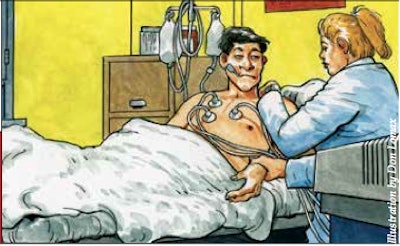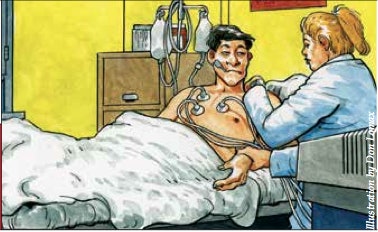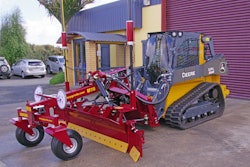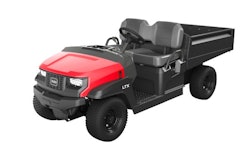

What the expert says: The worker could have avoided this situation by not going to work Monday, says Dr. James Muntz, an internist at The Methodist Hospital in Houston and team physician for the Houston Rockets, Astros and Texans. If you’re going to be working in high-temperature, high-humidity conditions for a number of days in a row, check your body weight before and after work. Likely, you are dehydrated already if your morning weight is four or five pounds below normal. Drink plenty of water and sports beverages and reduce your time outdoors on such days.
To prevent dehydration on a typical hot day, drink at least one cup of water per hour. For every three glasses of water you consume, have half a glass of a sports drink such as Gatorade, Muntz says. Replacing fluid with water alone can cause the body’s sodium to be diluted – a medical emergency. Salty snacks such as pretzels, potato chips and peanuts also are good options for preventing this. Take frequent breaks in the shade or air conditioning, if possible. Working or taking a break near a fan will help your body dissipate heat. Alcohol is a dehydrating agent, so don’t drink it the night before a day of work in extreme heat. Wear loose-fitting clothing made of breathable fabrics.
Symptoms of dehydration include decreased perspiration, dizziness, nausea, confusion, personality changes, headache, poor appetite and dark-colored urine. If you notice any of these warning signs, get out of the heat, into an air-conditioned area if possible and rehydrate. In most cases, doing this quickly will avert further problems, Muntz says. Untreated dehydration can lead to heat exhaustion, heat stroke and kidney failure.
Some people are more susceptible to dehydration than others. If you have hypertension, high cholesterol, are obese or take anti-inflammatory medication for joint pain, you should be especially careful. In areas of the country where extreme heat is uncommon, people are more likely to become dehydrated on a hot day because their bodies are not acclimated to high temperatures.









